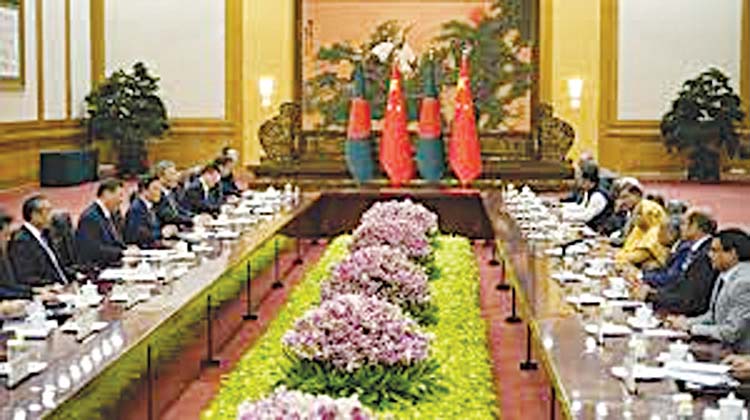Dhaka, Oct 18 (Representative) Requesting Bangladesh’s admission into the world’s largest trade agreement, the China-led Regional Comprehensive Economic Partnership (RCEP), the Commerce Ministry wrote a letter of approval to the Foreign Ministry on Monday, media reports said. This is Bangladesh’s first official move towards joining the RCEP, a significant trade deal including investment, trade in services, technical and economic cooperation, and dispute resolution, The daily Star quoted. Bangladesh’s primary motivation for initiating move to joining the RCEP is that, upon graduating from the list of least developed countries (LDCs) in 2026, it will forfeit preferential trade privileges to markets comprising the Association of Southeast Asian Nations (ASEAN) group. Bangladesh might potentially find markets in 10 ASEAN countries, which are Brunei, Cambodia, Indonesia, Laos, Malaysia, Myanmar, the Philippines, Singapore, Thailand, and Vietnam. Additionally, the Asian Free Trade Agreement (FTA) has been signed by China, Japan, South Korea, Australia, and New Zealand, in addition to the five additional nations that are part of the RCEP. Thirty per cent of the world’s GDP, 31 per cent of the world’s foreign direct investment (FDI), and 25 per cent of the world’s commerce are accounted for by these 15 RCEP member nations. A senior official in the Ministry of Trade stated, “We have sent a letter citing our consent to join the RCEP,” Bangladesh’s membership in the RCEP was already authorised by the Chief Advisor’s Office.
The RCEP was formally introduced in November 2020, went into force in January 2022, and opened its platform to outside participation in July 2023. Any industrialised nation may become a member, as may developing nations and LDCs. A document from the Commerce Ministry stated that the ministry has already finished the necessary evaluation to become a member of the RCEP. First, it is estimated that FDI would rise by 3.36 per cent and Bangladesh’s exports would rise by USD 3.26 billion. The Commerce Ministry stated in a statement that the apparel industry would contribute significantly to exports and that there will be an 18 per cent increase in the need for both skilled and unskilled labour in the garment sector. According to the research, the country’s GDP will rise by 0.26 per cent overall if it enters the RCEP. Nonetheless, the services, investment and e-commerce sectors would confront many difficulties if competition is not raised. Bangladesh will need to have separate negotiations with ASEAN Regional Forum members due to its South Asian location and membership in the organisation.
It will, nonetheless, also profit from its close vicinity. Bangladesh will thereby profit from the global value chain, according to the paper. An official from the Trade Ministry also indicated that formal discussions to negotiate an economic partnership agreement (EPA) would begin next month in Dhaka with Japan. Japan and Bangladesh have previously finished working together on an EPA feasibility study. Formal discussions, however, were postponed because of Bangladesh’s August political upheaval. The source from the Trade Ministry did not, however, specify the date of the meeting with Japan. Additionally, the person stated that no formal procedures have been made by the trade ministry to begin discussions on a Comprehensive Economic Partnership Agreement (CEPA) with India. More than two years ago, Bangladesh and India finished their collaborative research on the CEPA. Right now, both sides are waiting for the formal start of talks. He said that it is anticipated that talks on a prospective free trade agreement (FTA) with China will begin soon.

